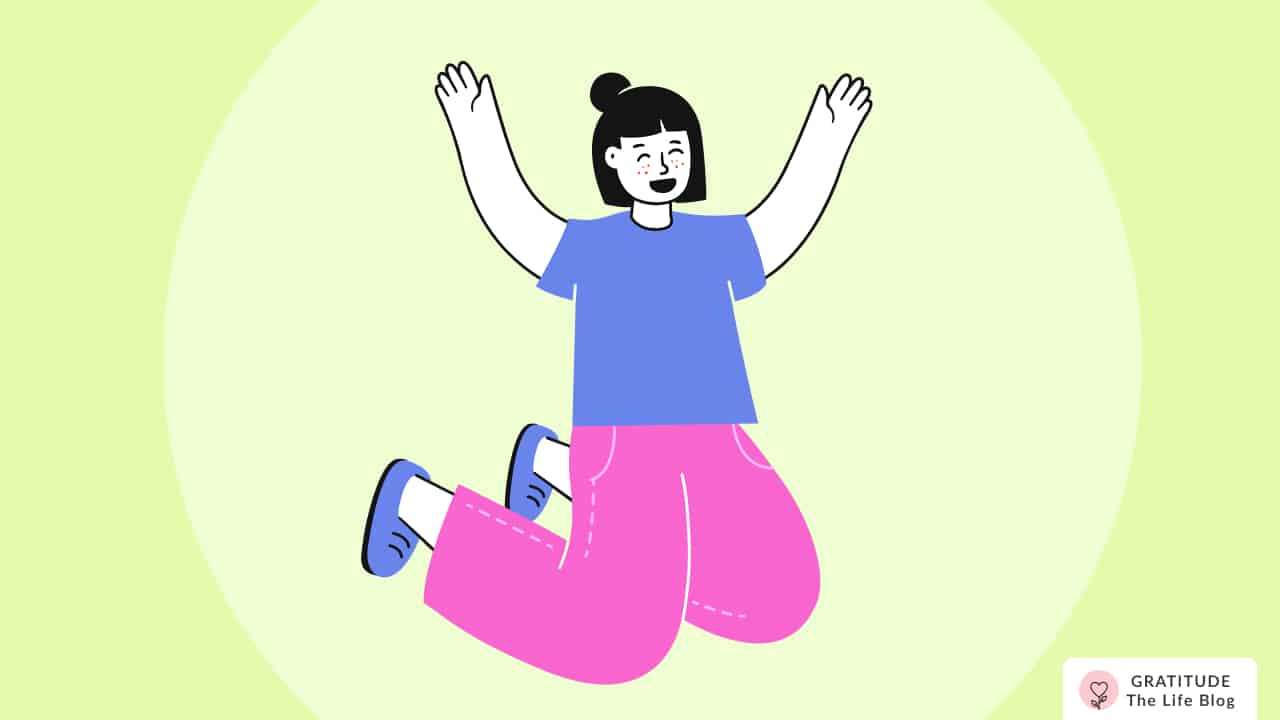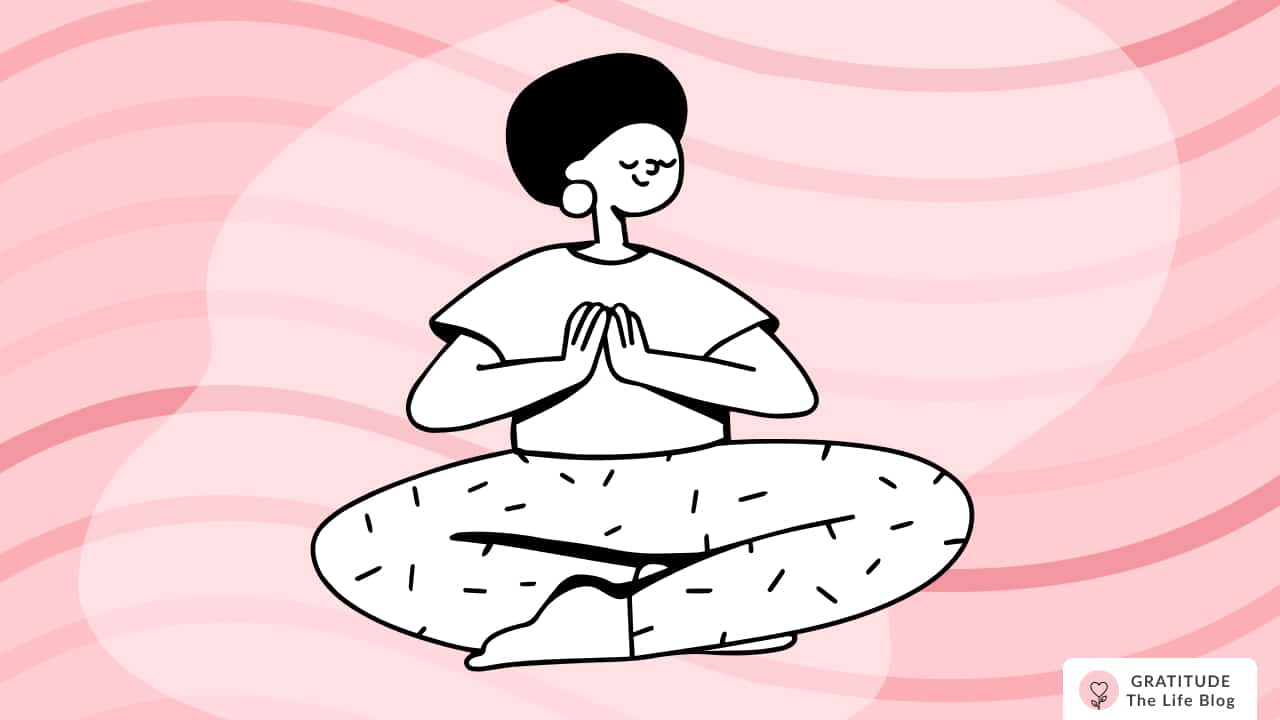10 Ways to Quiet Your Mind That You Can Try Right Now
Learn helpful ways to feel calm and relaxed.

I feel quite driven to write this post today as it’s not only a good topic but also one I need.
This evening I’ve been feeling overwhelmed and I know that helping you with these tips will end up helping me too.
So, how to quiet your mind?
In my opinion, a quiet mind is one that is detached from thoughts, situations, and challenges, and grounded in the present.
It is when our mind faces problems head-on but doesn’t let them invade its stability.
Have you watched Kung Fu Panda? There are two kung fu masters in the movie, Master Oogway and his student, Master Shifu.
Both realize that there is the incoming danger of the villain Tai Lung putting the safety of citizens at grave risk. The city is not prepared to handle him.
The categorical difference between the two is that Shifu is stressed, agitated, and overwhelmed, while Oogway is calm, amiable, and not reacting the way Shifu, and we, expect him to.
Most of us will relate to Shifu. It is so easy to lose peace when there are problems we feel inadept to handle. So much so, that a calm person would seem unsettling.
But, Oogway wasn’t unconcerned.
He knew that he could very easily react like Shifu but that would make it harder for him to think clearly and make good decisions.
His frenzy would be the destruction of his city.
So, the very first way to quiet your mind is to understand why it matters.
It is when we are calm and centered that we live and respond like we want to.
A quiet mind comes up with the best solutions while living peacefully in the true present.
“Your mind is like this water, my friend. When it is agitated, it becomes difficult to see. But if you allow it to settle, the answer becomes clear.”
I often remind myself of this when I begin to feel stressed and it stabilizes me.
So, let’s now go into the methods that can help us quiet, relax, and still our mind so that we can make good decisions and enjoy the present:
- Connect to your breath
- Observe nature and animals
- Exercise
- Listen to calming music
- Guided meditation
- Affirmation sessions
- Gratitude journaling
- Create something
- Watch something funny or heart-warming
- Seek help
How to Quiet Your Mind
1. Connect to your breath
This is the one that helps me the most. Our breath is a response and part of how our body feels.
When we’re stressed we take shallow, fast breaths. Purposeful deep breathing (also called diaphragmatic breathing) helps reduce stress and make us feel calmer.
Let’s try the 4-7-8 breathing technique, also called relaxing breath.
Here’s how you can do that:
- Go to a quiet, comfortable, dimly lit place. If you can’t, pop in your headphone with some soft music and cover your eyes.
- Start taking a long deep breath in for four seconds. Listen to the sound of your breath and place your hand on your belly to feel it expand.
- Now, hold your breath for 7 seconds.
- Then, breathe out from your mouth for 8 seconds making a “whoosh” sound.
- This completed one cycle. Repeat for three cycles and more if you need.
Even the simple long breath in and out helps a lot. Do this exercise daily and in the moments when your mind feels unsettled.
2. Observe nature and animals
My dog brother is the best part of my life. Whenever I see him I feel so much calmer and happier.
Animals really live in the moment. Going on a walk with him and looking at the trees around us, meeting his friends, it’s something that brings my focus to what is truly real.
Going out into nature and observing it intently really helps. The important bit is to consciously move your attention outward.
Look at the sky, the trees, the birds, and the colors, connecting with the world you live in.
3. Exercise
Exercise is good for our mental health. Research has revealed that exercise is effective in reducing symptoms of depression and anxiety.
So, take a ride on your bike, do pilates, stretching, yoga, jump rope, and any other form of exercise that you enjoy to help feel calmer.
4. Listen to calming music
Whenever I’m working, I go on YouTube and play either nature sounds or white noise.
This music is fundamental to my routine. It helps me focus, feel calm, and center myself in case I start to worry or stress.
It is also a great supporting actor for deep breathing—both combined help my mind feel still and quiet.
5. Guided meditation
This a very popular tip and for good reason. Meditation is especially helpful for reducing stress.
I like the channel Great Meditation quite a lot as they regularly bring in new meditations and there’s always something to try.
6. Affirmation sessions
Relaxing positive affirmation listening sessions have also been quite helpful in reducing stress and my mind’s clutter.
Our Gratitude app has hundreds of affirmations you can listen to at any time.
Here’s a daily affirmations session (in my voice!) on our channel that you can listen to right away.
Whenever I play these affirmations, they help divert my focus to empowering and compassionate words.
7. Gratitude journaling
I write my gratitude entries, often in the form of lists, in the evening. I add the photos I’ve taken through the day to my journal and start writing about the little joys I experienced.
As someone who’s made a course on gratitude and regularly writes about it, you’d think I never face any challenges. But I do.
Many evenings, I start writing with the thought that I don’t really have much to feel grateful for that day.
But then I begin. The photos I’ve added really help. And then as I start to count the good things, I remember more and more of them.
So many times our thoughts create barriers for us that don’t really exist. Gratitude journaling makes us look at the blessings we are fortunate to have, thereby humbling us.
I always feel better and rejuvenated after writing my lists. As of Sep 15, 2022, I’ve written daily for 696 days and I cherish each entry of mine.
This reminds me, even reading your gratitude journal helps in calming down. It makes us realize the very many ways that we have been blessed.
I love gratitude journaling!
Want to try it out? Here are some prompts that will help.
8. Create something
Another activity to quiet your mind is to do something creative.
Whether it be cooking, writing, drawing, DIY crafts, sewing, or more, getting the mind to employ its efforts toward creating helps a lot.
We become so involved in the process that we often forget what we were thinking about before.
Do you remember I mentioned that I was feeling overwhelmed at the start? Well, I have nature sounds playing and I’m writing this, and I feel serene.
9. Watch something funny or heart-warming
Another thing that I did before writing this post was watching a few funny videos. Humor is a beautiful savior.
I am a fan of The Office and watch it daily.
Also, videos from heart-warming channels like The Dodo make my day in minutes, and so does reading Winnie the Pooh.
Art is our friend, let’s let it support us.
10. Seek help
Sometimes, making the mind quiet is not as easy as trying out these activities.
There may be deeper causes for stress that need the attention of someone professional.
If you can manage, seek therapy. Communicate with the people you love that you need their support.
I know that it’s not comfortable, but if it’s what you need for your peace, you must do it.
I wish you very well. I hope these tips helped you. Share them with the people you care about. Take care!
Continue Reading: 15 Easy & Simple Positive Thinking Exercises To Improve Your Mood






























